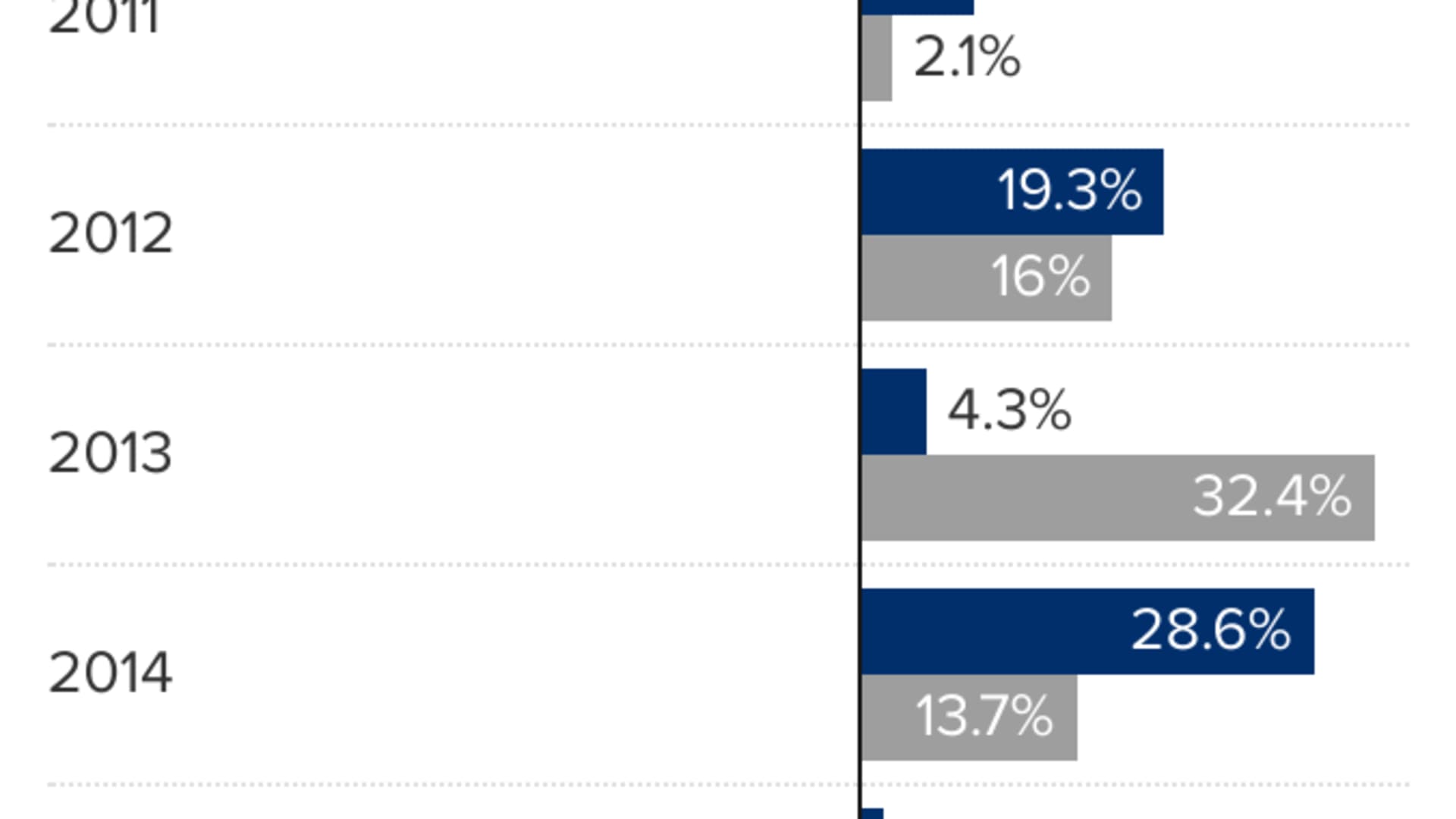
- About $1.5 trillion is invested in U.S. real estate investment trusts, according to Morningstar Direct.
- REITs generate revenue through the properties they own and are required to pass on 90% of their taxable income to shareholders.
- Long-term leases generally include inflation clauses.
Retirees who are worried about inflation eroding the value of their income may want to check out real estate investment trusts.
REITs are companies that own and/or operate properties like shopping malls, office buildings, warehouses and apartment buildings. Although they come with more risk than some other income-producing investments — such as Treasury bonds — they also have inflation protection built into them, experts say.
"Generally, REITs tend to do well in times of inflation, just because of their ability to increase rents and then pass that income on to [shareholders]," said certified financial planner Marco Rimassa, president of CFE Financial in Katy, Texas.
Get Connecticut local news, weather forecasts and entertainment stories to your inbox. Sign up for NBC Connecticut newsletters.
As the U.S. continues climbing back to pre-pandemic economic activity, inflation has been on the minds of investors. A key inflationary measure — the core personal consumption expenditures price index — rose 3.4% in May from a year earlier. Another gauge, the consumer price index, also jumped last month to 5% over the same period.
However, given where the economy was a year ago — still in the throes of pandemic-induced shutdowns — Federal Reserve officials view the jump in prices as transitory.
Nevertheless, retirees searching for steady income that would be less impacted by inflation could consider REITs. Roughly $1.5 trillion is invested in U.S. REITs, according to Morningstar Direct.

Due to their legal structure, REITs are required to pay out 90% of their taxable income to shareholders in the form of dividends. Those payments typically are made quarterly or monthly, Rimassa said.
Money Report
The average dividend yield on REITs is in the neighborhood of 3%, according to May data from industry group NAREIT. That compares to the 1.5% yield on the bellwether 10-year Treasury bond.
However, not all REITs perform the same, regardless of what inflation is doing.
"It comes down to the underlying business," said Kevin Brown, a Morningstar analyst. "There are a lot of different sectors and they operate on their own fundamentals."
More from Personal Finance:
How to protect your retirement portfolio from a market dip
Here are early signs that you have a spending problem
How climate change is impacting retiree portfolios
For example, what drives a hotel's success is different from the factors for, say, a senior housing facility or warehouse space.
"You can't think about a real estate company as being similar to every other one," Brown said.
Yet because rents and property values tend to increase when prices do, the REITs whose properties are able to capitalize on that can provide an inflation hedge.
For instance, hotels can boost room prices, or apartment buildings can push up rents more easily as tenants turn over. And higher REIT income generally means bigger dividend payments to shareholders.
REITs whose properties strike longer-term lease deals with tenants — for example, retailers at shopping malls — typically have annual increases built in that are based on the movement of the consumer price index. However, those rent hikes also tend to have a limit to how big of a jump can occur, which means inflation could outpace those increases.
Nevertheless, Rimassa said, "even if rent increases are not able to keep pace with inflation in the short term, the property values generally are still increasing."
The easiest way to get exposure to many REITs at once is through a mutual fund or exchange traded fund that invests in those real estate companies. From a portfolio share standpoint, about 10% of your stock allocation could go to REITs, Rimassa said.
It's worth noting that if you hold REITs outside of a tax-advantaged retirement account, their taxation can get tricky. Generally, the dividends are subject to ordinary income tax rates, although you may be able to take a 20% pass-through deduction on some of the income. Because it can be complicated, it's worth consulting with a tax advisor for guidance.






